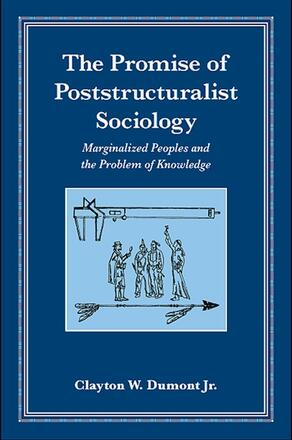
The Promise of Poststructuralist Sociology
Marginalized Peoples and the Problem of Knowledge
Alternative formats available from:
A postmodern critique of sociology’s presuppositions.
Description
In this fresh look at the serious challenges posed to sociology by poststructuralist philosophy, Clayton W. Dumont Jr. maintains that disempowered, marginalized peoples have much to gain from a poststructuralist interrogation of sociology's philosophical and theological presuppositions. He argues that debates among American sociologists in the 1980s and 1990s over the value of difficult poststructuralist writings failed to examine cultural assumptions rooted in the discipline's extended Greek and Christian inheritances. Writing in an accessible style, the author situates complex poststructuralist ideas in tangible examples drawn from everyday life. The book concludes with analyses of the heated political conflict surrounding the Native American Graves Protection and Repatriation Act of 1990 and affirmative action programs, illustrating the promise of increased political efficacy and civic responsibility of a poststructuralist-informed sociology.
Clayton W. Dumont Jr. is Associate Professor of Sociology at San Francisco State University.
Reviews
"The author brings an original and provocative perspective to the debate surrounding sociology and postmodernism, and has written a unique book in its ambition, scope, and deliberately personal dimension. He illustrates difficult ideas with many easy-to-understand examples, and he inserts himself into the writing so that the reader feels as if in a conversation or dialogue. Students will feel the author's presence and be engaged." — Steven Seidman, author of Contested Knowledge: Social Theory Today, Third Edition